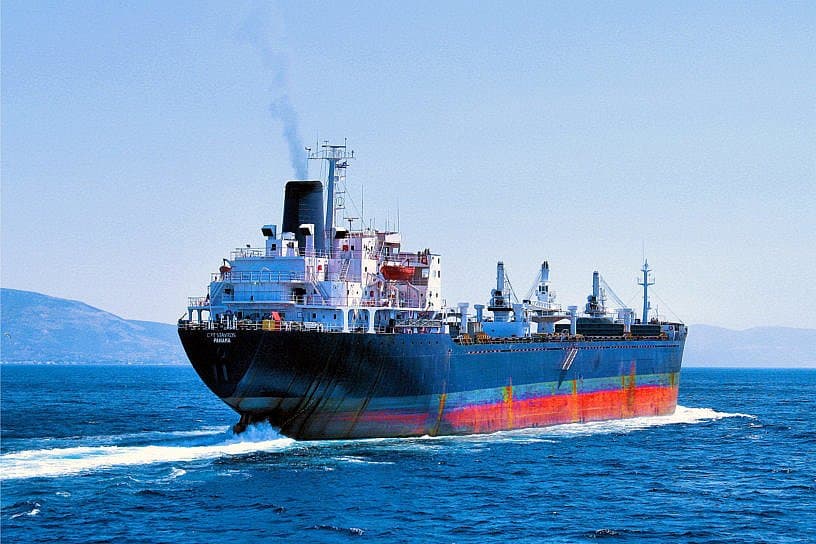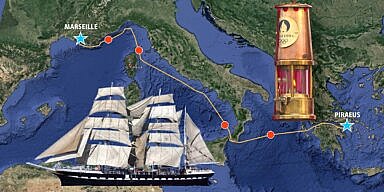Support of Greek Economy by the Greek Merchant Marine
Greece has been struggling with a deep economic crisis since 2009, reaching its nadir in 2012. Despite many and frequent, optimistic statements by its politicians, the fact has remained that its economy has not responded to any impetus. It has continued its downward spiral to today. Severe austerity measures were dictated by its lenders, including deep cuts in retirement benefits, to shoulder a new, crushing debt that (may) be paid back by 2060. The industry has not flourished in Greece, and thus one of the few sustaining elements of hope is the attractions of the glorious sun, sea, beauty, and history of this ancient land.
But the incredible, unexpected event of the worldwide COVID–19 virus stands to cause significant harm to the Greek tourist industry – that constitutes an official 20% of the country’s economy (and possibly an additional amount in non-reported income.) As the world’s current shut-down – to defeat the spread of this dangerous and easily transmittable virus – eases in the summer of 2020, Greece hopes that the tourists will return once again, to enjoy the delights of Greece and that the tourist industry and its income will not suffer. The Greek government is, wisely, currently launching a major advertising campaign to attract tourists to the relatively safe Greek experience.
But what if the hopes and predictions of a good tourist season do not arrive? What other industry is there to support and prop-up the Greek economy, in this (hopefully) temporary condition? Well, we should take a look at an often overlooked asset of Greece: its Merchant Marine. It is the second-largest contributor to the Greek economy, after tourism, contributing about 7.5% of its GDP.
Greeks have been sailors and traders since ancient times. Greece’s location in the Eastern Mediterranean, and its many natural harbors on the mainland, as well as its islands, have contributed to creating a strong, healthy, experienced, and well-organized Merchant Marine empire. Many generations of these strong men of the sea have sailed for centuries, fought in the Greek revolution against the Turks, died in both World Wars of the twentieth century, and afterward established themselves in a leading role in the present Maritime Merchant Marine. The current group of shipowning magnates (Greek: Εφοπλιστές) includes people from the islands of Andros, Cephalonia, Chios, Crete, Kasos, Samos, Santorini, Sifnos, Syros, and on from the mainland from Arcadia, Katakolo, Messinia, Piraeus, Pontos, Smyrna (Onassis) and Thrace.
Practically all the world’s commerce is carried on ships. Today, there are approximately 23,000 ships that carry bulk cargo, goods, or fuel around the world. Approximately 4,000 of these ships, totaling about 330 million “Deadweight Tons” and worth about $100 Billion, are Greek-owned. (Deadweight refers to the total cargo, consumable fuel, water, & passengers a ship can carry.) These Greek-owned ships are mostly of large capacity and constitute the largest merchant fleet in the world, greater than the next in line, which is Japanese, Chinese, and German. Greeks carry about 20% of the world’s seaborne trade. They transport 27% of the world’s crude oil with their tankers, 15% of dry bulk cargo, and 15% of the world’s chemicals, and are slowly entering the field of container vessels as well.
The numbers are incredible – Greece has only 0.13% of the world’s population, yet rules the waves in terms of Merchant Marine activity. Although many of their ships sail under so-called “flags of convenience” – mainly those of Liberia, the Marshall Islands, and Panama – for economic reasons, there are still about 17% that sail under the flag of Greece. Their companies may have non-Greek names, but the people behind them are Greeks. Thus, the Greek Merchant Marine industry forms a giant bulwark that supports the Greek economy, year in, year out. In recent years, they have been exchanging their older, smaller ships for fewer but larger ones, expanding their overall fleet capacity.
Although the “COVID–19” virus issue has affected the international economy, including the shipping industry, the effect in that sector has been less than in others. Hence, the expectation is that they will recover more quickly. Thus their maritime trade activities will bring the much-needed support to ensure that Greece will survive yet another peril in its history, even if the other industry, tourism, suffers a temporary setback.



